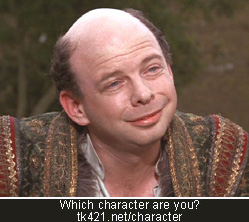
Originally Posted by
1990

There is a lot of argument over what makes a Fourth Turning a Fourth Turning -- what makes it a Crisis and not an Unraveling, Awakening, or High? Is it full-scale war? An economic depression? Just a mood shift away from 3T denial? I don't agree with the notion that any one of these is requisite for a true Crisis. The Swiss had a 4T during WWII without actually taking sides in the war. The Russians had a 4T (in my opinion) during the '90s without participating in the nearby Balkans Wars. The Brazilians (and most other Latin Americans) had a 4T during the '60s, '70s, and '80s without any sort of traditional war. These were all still Crises, though.
So again, what makes a Crisis a Crisis? I think the answer is simpler than one would think. It is simply an era when all the chickens that have been postponed and ignored come home to roost. Sometimes this does lead to a war and a depression, just one or the other, or even neither. But what it always is about is a period when the society affected is forced to solemnly consider its priorities and create a new order. And what is the catalyst? If you think the catalyst is always hyper-dramatic and hyper-patriotic, you probably say 9/11 catalyzed the 4T of our time. But this is not always the case. In fact, it is almost never the case.
America was founded in a 4T. Most societies are. In our case, we had a Revolution, a War of Independence. But what catalyzed it? Not an attack on our soil. Not a recession. Actually, what catalyzed it, according to S&H at least, was a few guys throwing tea into the ocean. And what started the Civil War? An election. And the Depression? It was catalyzed by Wall Street having a really bad day.
In none of these cases did the populace immediately rally behind the President and unify in some grand way. As the Revolution began, a large proportion of Americans still backed the British, and considered the likes of Thomas Jefferson, Benjamin Franklin, and John Adams treasonous. And indeed it was 3 years after the Tea Party that the Declaration of Independence was signed and our heroic Revolution began. The Civil War never had its heroic moment of unity. And World War II, the ultimate "heroic war", did not begin for us until 12 years into the 4T.
If we put aside our assumption that something like Pearl Harbor has to begin a 4T (after all, Pearl Harbor didn't begin a 4T), then the answer to "Be we 3T or 4T?" seems a lot clearer. I am beginning to join the camp that contends that Hurricane Katrina and the surrounding government meltdown in 2005 was the catalyst. While 9/11 was a tragic event, it did not have the effect of permanently throwing people into 4T mode. Well, it did...prematurely, for about five days. And that could not have been a real 4T catalyst because we were temporarily united in patriotism. We were not questioning ourselves, we were all angry at our enemy. This mood, if long-term and not a brief mood, is characteristic of late in a 4T, not the beginning of one.
For that reason, the Culture Wars returned with a vengeance, and so did 3T decadence, economic bubbles, indulgence, and apathy.
Just compare the 2004 election with the 2006 election. In 2004, gay marriage bans probably won the election for George W. Bush, in Ohio at least. The three-tiered division was growing sharper by the day: between people who thought Bush was our Next Great Leader, people who thought Bush was evil, and people who were disillusioned by both sides. In 2006, there was one unified message from the voters. No, it wasn't "Democrats rock!" Actually, it was a lot simpler: NO MORE.
2005 was a year of transition. At the beginning of the year Bush was being sworn in for a 2nd term, causing half the country to cheer and half the country to cry. His approval rating was about 52-55%. At the end of the year Bush's approval was 35-40%, an entire region of the country was destroyed, and the public mood was darker than it had been in any of our lifetimes.
This extreme pessimism has not subsided. While Unravelings are characterized by fragmentation and controversy, Crises begin with a profound malaise coming over society. Russia's last Crisis did not begin with an event like 9/11, it began with an event like Katrina. Or as Katrina is spelled in Russian, Chernobyl. The Chernobyl disaster symbolized the crumbling of the old order created after the Bolshevik Revolution. Public confidence was extremely low and the mood was highly pessimistic for the next 5 years. As the USSR collapsed in 1991, Boris Yeltsin gave the Russians hope of a new order. Thus began their Regeneracy.
As I said, a Crisis is about the old order finally decaying to a point in which everybody agrees something must be done. If this point can be catalyzed by a tea party, an election, or a bad day on Wall Street, why can't it be caused by the destruction of a city?
Originally Posted by The Princess Bride

